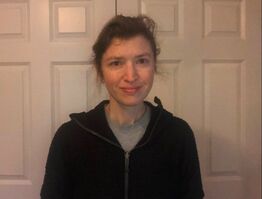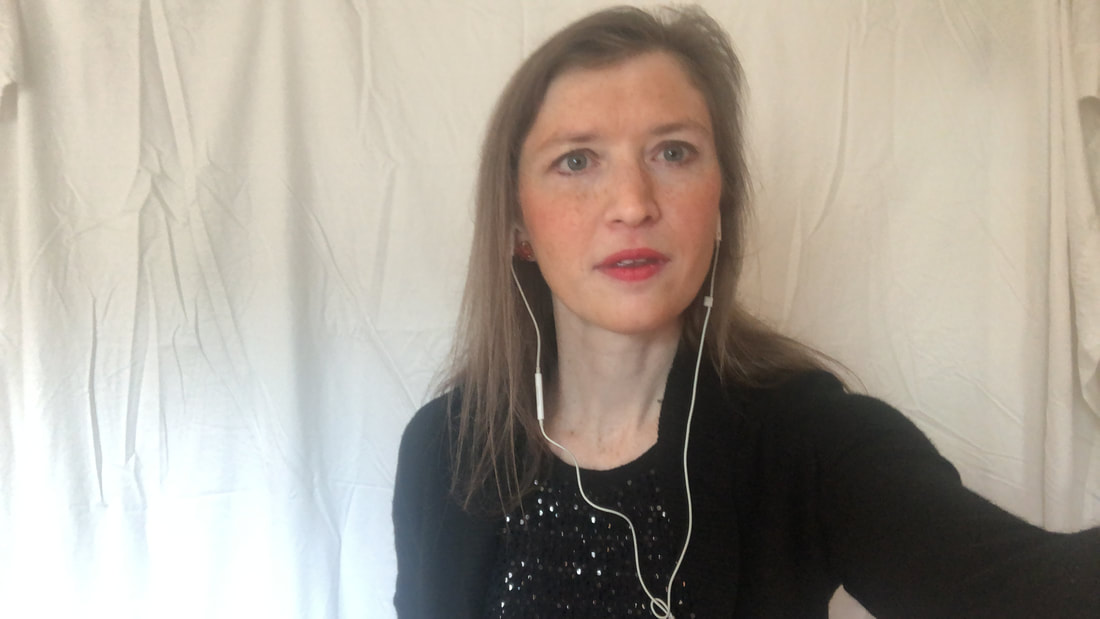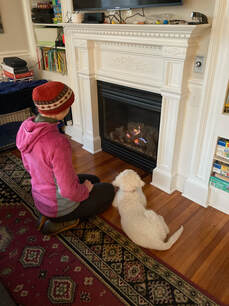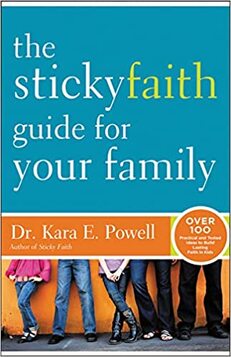|
The first time Dan and I got a puppy (over twelve years ago now), we had no kids. As I’ve written on this blog in a prior post, Sanibel was our first child, and we grieved for a long time after she passed away in November, 2018. This summer though, we realized that our youngest kids barely remember her, and while Sanibel can never be replaced, we also knew that we wanted our kids to grow up with a dog in the house. We knew it would be a challenge to bring a puppy into the mix with four active children already. So we decided to make it absolutely as hard as possible by purchasing said puppy on the brink of winter during the pandemic right after travel restrictions tightened up again. That way, the kids’ grandparents would be unable to babysit them as we had been hoping so Dan and I could drive out and get the puppy ourselves. Instead, my daughter and I could make the 15-hour round trip harrowing drive through a Nor’easter into Pennsylvania and back. (After hydroplaning slightly on the highway, I heard a voice from the backseat: “Mom, what was that sound?” “Oh, just the tires going through some water. We’re going to drive in the middle of the road now.”)
Fortunately, Dan volunteered to run the remote schooling show in the upstairs of our house, so I could sit in the dining room and learn the music. Rehearsing with Opal snuggled in at my feet, I couldn’t help but compare the experience to practicing for the 2018 Christmas Concert. Sanibel hated music. Maybe she felt it was too unpredictable, maybe too loud, but when I think of the last weeks of her life, I remember the disdainful looks she gave me as I sang about God’s love for the world. My tiny newborn, Opal, by contrast, raised her head occasionally in surprise but went back to napping pretty easily. For me, the emotions involved in this process were overwhelming. To be recording a concert virtually during a pandemic while being reminded of a grievous loss in our family, I wanted to simultaneously cry for the memories and smile at the possibility to still carry on. By the end of the week, I was feeling ready enough to sing for the camera. But first, I had to construct the set. After many iterations of furniture arrangements and lighting options, Dan helped me hang a white sheet over our bedroom closet door to create a neutral background, using the push pins that one of our sons brought home from school to strengthen his fine motor skills. After grabbing my children’s reading lamps for spotlights and slipping my phone into one son’s phone tripod from the Harry Potter invisibility cloak gift set he got for Christmas the year before, I felt ready. I took a practice selfie to assess my progress...and realized no one wanted to see that mugshot. So a shower and wardrobe choices and makeup followed, but eventually, it was time to press record.
After singing my heart out, I played back the recording, only to hear my children’s screams from the living room downstairs. Right. I had left Dan to juggle four children and a non-potty-trained puppy at the same time. It was a bit much to ask, but after a few more takes, we got there. During those early weeks of December, everything seemed to be happening at once, but after that, life seemed to calm down a little, back to its regular chaotic state. We were heading into the last days of school before Christmas break when we got the call from the vet late in the evening on December 22nd. “Your dog has giardia.” And if you have no idea why our stomachs sank when we heard those words, all I can say is lucky you that you’ve never experienced parasite-induced diarrhea. The first time Sanibel had giardia, we were living in an 8th floor apartment in Chicago. Dan will never forget that night when he waited for the elevator eight times, hoping our dog could hold it long enough to make it outside. Opal, fortunately, was asymptomatic, but the vet recommended treating her before it really took hold...and before she affected anyone else in the house. “Giardia can be transmitted from dogs to humans,” she warned. And then I remembered how one of my sons had vomited his breakfast the other day. I had assumed he got up too early (ahem, 4:30am) in his excitement about the first big snowfall. But then later that evening, another son couldn’t make it to the bathroom in time after running in from playing in the snow. The snow pants were spared, but I was glad for the sanitize cycle on my washing machine in order to take care of the rest of the clothing. Come to think of it, a third son had complained of stomach pain after not eating much dinner... Suddenly, it hit me that my children might already have giardia, and I needed the answer to a very pressing question: Am I going to have to collect stool samples from my children? On top of all of the other stresses I was already feeling, I really didn’t think I could do that one. I really thought that might make me snap. The nurse who returned my frantic message to the pediatrician’s office tried to reassure me that it was unlikely my children had giardia. “People actually contract different strains than dogs,” she explained. “But,” she continued, “they could have COVID.” Ah. Right. They could have that virus that is ravaging our planet. But I have to tell you that as I was talking to her on December 23rd, anticipating Christmas preparations and how we were basically heading into a quarantine time anyway and had been quarantined pretty much due to remote schooling, all I could think was how relieved I was that they likely didn’t have giardia. I wouldn’t have to schlep all of my children to the doctor’s office or rush out to get medication from the pharmacy. AND I WOULDN’T HAVE TO COLLECT ANY STOOL SAMPLES!
0 Comments
I was at a school playground with my kids recently when I overheard a conversation between four young teenage girls that made me pause. I’m guessing they were in eighth or ninth grade. “You went through a Jesus phase in seventh, didn’t you?” one asked another. Mumbling ensued that I couldn’t discern, and then I heard something like, “Yeah, that stuff was really important to our parents when we were young, but not now.” A third girl seemed to start to wonder why that was, but stopped. The conversation paused and then shifted direction. I can’t claim that these girls had spiritual questions, but I can claim two things from this, both of which made me sad: First, they had questions about why they were taught about church when they were young and why that teaching stopped. Second, they didn’t make more of an effort to talk about spiritual things with their friends, perhaps because they weren’t interested, perhaps because they were embarrassed, or perhaps because they just didn’t know how. But the fact that they considered discussing these things at all made me feel like they wanted to talk about these things on some level. As I reflected on what I heard of their conversation (i.e. righteous indignation stirring) and the accusatory thoughts it stirred in me (akin to Why didn’t their parents keep teaching about faith and the church?!), I was instantly humbled as I recalled my admission to you in last month’s newsletter that I myself had run spiritually dry. At dinner that night, with my husband and four children, I asked for everyone’s attention. I told the story of the four girls, and I then I said this: “I want you to know it’s okay to ask questions about God and Jesus and the church. I want you to know that you might not always have the answers, that some answers may take years to figure out, and some answers you may never get.” My daughter interrupted, saying that she had thought once that the story of Jesus all made sense to her, and that now she wasn’t so sure. I nodded and affirmed her. “I think that you’ll find that as your brain grows, your questions will change. But I want you to keep asking questions. I want you to be able to keep talking about God and Jesus and the church. There may be times when Daddy and I don’t seem to talk about it as much, but it is still important, and you can always talk to us about those things.”
The authors recommended choosing five or fewer suggestions (out of a hundred) to start, with the emphasis on starting small and trying to be consistent. I knew I wanted to start with the ideas in Chapter 2: Modeling Faith.
Pre-COVID, I used to sit at Starbucks in the mornings, and while I waited for my tea to cool off enough to sip, I wrote in a gratitude journal and read the Bible. I had a pretty consistent “Quiet Time” as some call it. It felt pretty ideal. But my kids never saw that. I realized that under these COVID conditions, my kids’ could be listening to me sing worship songs during our church’s services, now streamed over YouTube. So that Sunday, I started to “go to” church again, deciding to dismiss any concerns about whether the kids would be too loud or distracting to really feel involved with it. Regardless of their behavior, if I turned on the TV, they would see how it was important to me. Besides attending church, I identified a few other things I wanted to try with my family. Small things like adding a question or two to the dinner conversation like, What was your favorite part of the day? Or Did anyone make any mistakes today? I was surprised when all of the kids latched onto that second one, and it brought to light how each of us views mistakes and how we evaluate what makes those mistakes big or small. In chapter 4, I learned about the power of prayer in building warm family relationships. There were beautiful examples of prayers parents prayed routinely over their children and / or with them. In our family, we say a dinner prayer and a bedtime prayer, but the examples in the book made me want to try out new ones. Here’s a fourth idea I likely will have to save for post-COVID times: The researchers stressed the impact of intergenerational relationships. I would like to identify five adults who can pour into each of my children’s life and faith. This could be through visits, activities or cards or gifts in the mail. Lastly, as I read about connections between monitoring teenage cell phone use and maintaining warm family relationships, I realized that while that was a long way off for our family, there were ground rules I could implement now...for myself. I knew that every time I checked a text message or an email on my phone, my children noticed. If I was staring at a screen, I was unavailable to them. I knew this and felt convicted all over again to place boundaries on technology for myself. I decided that for the after school hours, when all of my children are home, I would try to put the phone away until after they go to bed. I also would save my computer time for when they are watching TV. For sure, there are other times when they are so engaged in play or a dance party or reading that they usually don’t seek my attention. During those times I am tempted to focus on my writing or computer-based research (where should my son take karate, for example). But having this boundary for myself has helped me maintain eye contact and be available when they do flit into the room with a question. Bottom line, I don’t want my children to be left out in the cold when it comes to their questions, spiritual, logistical or otherwise. Five years from now, when they are hanging out on the playground with their friends, I don’t want them to feel embarrassed or hesitant if someone asks about faith. I want them to be curious and supportive of others, and I want them to have people in their lives who can be faith role models, approachable people who will listen and encourage them on their spiritual journeys. And all of that starts at home. I’m aware that my presentation needs work. My ankle-length, winter white sleeping bag coat is smeared with more than two seasons of grime, and even if it were brand new, L.L. Bean sure wasn’t going for sleek and sophisticated when they designed it baggy enough to fully zipper my last pregnancy to full term. And that was when I was carrying twins.
The day I arrived at the unmarked warehouse that is La Collaborativa Food Pantry in Chelsea, I tried to put some cheer and confidence in my voice to make up for what I lacked in appearance, but when I approached the two women on the front step and asked, “Is this the food pantry?” one of them gave me a double take and, hesitating momentarily out of politeness, asked, “Are you looking for food?” “No,” I replied, remaining pleasant so as not to undermine their purpose, to affirm that it’s not shameful to accept handouts. “I’m from Highrock Church. I signed up to volunteer to pack boxes today. That is, if you could use the help?” I had first heard of the need two months back, through my pastor’s wife who had rallied the moms ministry to act on behalf of this operation that had lost its USDA sponsorship in late 2020. This organization usually feeds 8,000 people per week, which meant that 8,000 people were now searching for another way to find food...or going hungry. My pastor’s wife, brimming over with compassion, quickly organized collection locations in 13 communities in the Greater Boston area. We moms were asked to add a selective list of items to our grocery lists and then deliver the foodstuffs to the designated drop box nearest to our homes. Several weeks went by before I jumped on the bandwagon. I had seen the weekly emails, the updates of multiple vans of food collecting and delivering hundreds of pounds of food each week, the generosity and collectively mammoth-sized offering of dozens of moms working together to support one of the communities hardest hit by COVID. I saw the updates and somehow couldn’t get past my cynicism that this would make any difference. Why should we be the ones to fix this? If we keep delivering food, will they ever figure out how to get it themselves? And then, a few weeks ago, something happened that I can only explain by calling it God’s intervention. I had been wallowing in my need to escape -- to escape my tiny home in the middle of a gray winter, to escape the uncertainty of COVID, to escape the soul-crushing isolation that resulted from the combination of all of those factors. I had been searching for a new home for my family, but when an opportunity fell through, instead of disappointment, I was surprised to feel enormous relief. I heard a reprimanding voice in my head, the kind that not only puts you in your place but speaks the wisdom you’ve been craving. It said, “You still live here.” Weary of Zoom meetings being my only way to see the faces of friends from my pre-COVID past, I had stopped attending my church moms’ small group sometime this past fall. I didn’t want to commiserate over pandemic woes and strive to make the best of it by substituting staples like full time school attendance with alternative activities like socially-distanced snowshoeing. I was ready to seek that full time school in a new community and imagine a new life for my family. I was so deep into the fantasy that I couldn’t function in my daily life. The wise voice told me I needed to step back into my life. Shortly after that, I signed into the weekly small group meeting and enjoyed the discussion of drawing closer to God through implementing spiritual disciplines, like fasting, rest, prayer, Bible study, confession, solitude, simplicity, fellowship and service. I shared my recent unexpected relief at losing out on an opportunity to leave my situation, and as people shared their own stories, I reflected privately that I was glad to feel called to spend time with God through service work. It had been a long time since I had participated in a service project. Perhaps since last summer. Sure, we still tithe and give monthly and occasionally to charitable organizations, but the last time I could remember intentionally participating in a service project was following my kids’ Vacation Bible School curriculum last June. I wrote about this already on this blog, how I wasn’t sure we had what it takes to give when we were running on empty ourselves. I also felt tentative about participating in projects because the overall message during COVID was “Stay home”. Earlier on this blog I wrote about seeking alternative fight strategies when our usual service work was disrupted, but thanks to that voice, I felt like I had waited long enough. I now felt moved to act. I added to my grocery list non-perishable items to donate to the food pantry in Chelsea, and I visited the SignUp Genius and, enlisting a friend to help out alongside me, I marked my name down for three shifts of packing boxes of food, boxes that other volunteers would later hand out to those in need. My first shift was cancelled due to a snowstorm, so a week after that I finally showed up on the doorstep, prepared to appear foolish and remain malleable in order to be used in whatever way was most helpful. The ladies standing there smiled at me from behind their masks and took me inside, explaining a bit about the facility. I quickly realized this was one of those situations where I could have benefited from studying Spanish in school instead of French, but at least no one seemed to mind. We mimed to each other and did the best we could. Except, when I wanted to double check that we really were supposed to throw away hundreds of pounds of meat that appeared stably frozen but was past the sell by date. Or when we were asked to sort a random assortment of non-perishable foodstuffs. If I understood how the food was distributed, perhaps I would be able to better discern whether to group Asian noodles with rice or whether baking powder should go with cake mix. And bottom line, I thought there would be so much work that I wouldn’t have time for ridiculous questions like these about the minutiae of it all. Somewhere in the middle of transferring wholesale linguine by the one-pound handfuls into individual Ziploc baggies while discussing the pros and cons of city versus suburban living with another English-speaking volunteer, I started to wonder if I was helping at all. I couldn’t see the bigger picture, and I couldn’t communicate to learn more. When I left at the end of my shift, I felt a little let down, a little discouraged. Was this what service was? Drudgery that feels like it’s getting you nowhere? It’s funny how I started the morning thinking I was going to do something useful with my hands but that I ended it wondering how any reasonable person could have thanked me for showing up that day. A few days ago, I was grateful to hear this reminder from my pastor during a Sunday sermon: The service work we do is a form of worship. If we remember that we serve others in order to serve God, then we don’t have to feel let down when the people who receive our gifts, like our offerings of food and time, might not use them as wisely or efficiently as possible. We don’t need to put qualifiers on our efforts. A few years ago, a mom in our family small group put it this way: if you feel moved to give, God will honor that gift. It was something I would remember when my book club read The Moment of Lift by Melinda Gates and criticized her efforts and even the efforts she could have highlighted with the writing of her book. From here I understand my task is to fight the human tendency toward cynicism that tugs at my heart and tempts me to push my cart past those items in the grocery store that are in high demand at the food pantry. Whether by contributing a few more bags of rice, or whether by showing up with willing hands on site, I can see God working through it all, through reinstating the connection to the USDA Farmers to Families program, through the faithfulness of the suburban mom minivan drivers, and through the perseverance of the on site volunteers. There is a season for everything, and while I’m here in this season, I turn to this work, remembering that at least one of my feet remains firmly planted, right here. This December, for the third year in a row, our book club enjoyed a book exchange. The format was a bit different due to COVID. Readers deposited their paper treasures in a cooler on my back deck and signed up to receive the title of their choice. A few days later, I delivered books in my car, temporarily cheered by lightly falling snow and crooning Christmas carolers on the radio. Christmas itself involved staying up to wee hours to wrap presents, then getting up twenty minutes later when my kids decided they couldn’t sleep another wink. And then, after a flurry of wrapping paper, Christmas ended, and I started wishing mightily for a pick me up. As my husband likes to say, there is no reward for getting through Christmas. You just get January in New England.
I have to tell you I laughed out loud. Repeatedly.
It was such a great choice for the dead of winter in the doldrums of a pandemic when you realize you haven’t had a date night in gosh knows how long. Date night now might mean sitting in the same room for an hour after the kids go to bed and fretting (fuming?) about how to get the squirrels out of your attic space. Then you read this little 100 page book. It reminds you that you don’t love marriage despite the struggles. In fact, you enjoy the struggles too. Or rather, you enjoy minor problem-solving scenarios like divvying up leftovers and doing that dance in the kitchen as we jockey for space. And with regards to bigger issues like the squirrels, perhaps you’ll enjoy laughing about those times when you look back at them later (if the squirrels ever leave). You enjoy this extra-unpredictable-other-worldly dimension of your life and truly believe it’s other-worldly in nature because only a God with a hope bigger than our understanding would ever believe that we could pull it off. Remember you are not alone is something we’ve heard so often during this pandemic and yet strained to believe, and this book reminds you of related truth that you’ve forgotten to remember -- to be grateful that you get to be a part of this strange club where you get to have inside jokes -- and inside arguments -- with the initially random person who later became the one who vowed to put up with you no matter what. This book is so great I’d say give it to your lover for Valentine’s Day. I mean, I would if the day hadn’t already passed. You probably got her something amazing though, right? What’s that? You forgot? Oh well, it’s really just a Hallmark holiday. No one really cares about it. At all. But you could still read the book. Enjoy. For twenty minutes may you too forget that you are in the middle of winter and slogging it through a pandemic. May you remember that you are surrounded by (sometimes suffocated by) someone who loves you. |
Author's Log
Here you will find a catalog of my writing and reflections. Archives
December 2022
|






